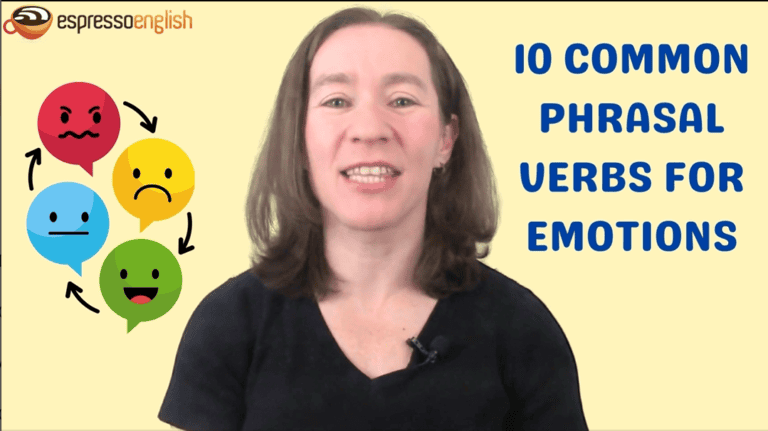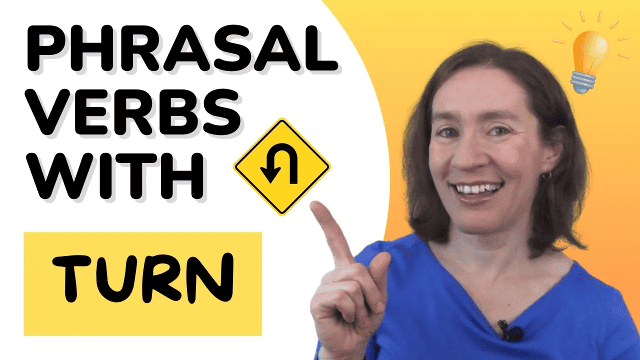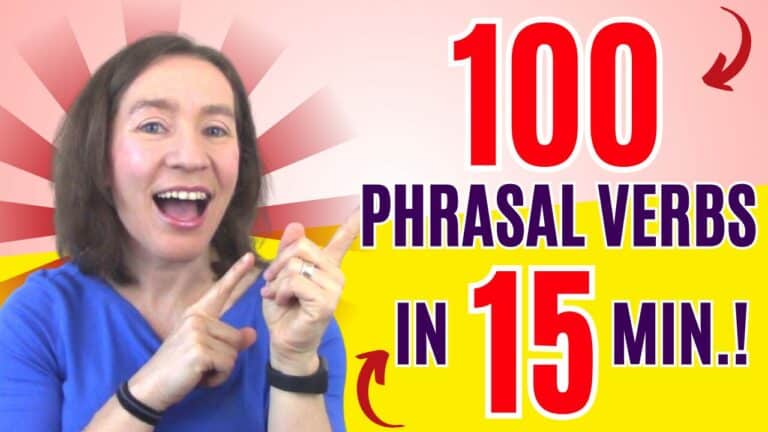
Learn more about the Phrasal Verbs Course
Hi students, it’s Shayna from espressoenglish.net. Today, I want to answer a question about two very similar phrasal verbs, find out and figure out. Both of these phrasal verbs are related to discovering some information. The moment where you begin to know some information that you didn’t know before but there’s a difference.
Find out
We usually use find out when you discover the information by hearing it from someone else. That’s why I have the ears or when you discover the information by seeing it with your eyes.
For example, let’s say your brother is going to get married and you would talk to him to find out the date of the wedding. He’s going to tell you this information so you’re hearing it with your ears. You find out the date of the wedding. Let me think of an example with seeing something.
Let’s say you are going to go to the grocery store and you can’t remember how many eggs you have in the refrigerator. You need to know if you need to buy more eggs. You would open the refrigerator and look inside to find out how many eggs you have. That’s another example of discovering information by seeing. In this case, we use the phrasal verb, find out.
Figure out
Figure out can be used for discovering information by thinking and by using your own logic, your own reasoning and analysis. For example, if you have math homework and there’s a problem and you need to discover the answer, then you try to figure out the answer because you’re using your own logic and your own thoughts. That’s why I have this little thought here. We often use figure out for problems that need to be solved by analysis and planning and thinking.
For example, let’s say you’re the manager of a fast food restaurant and you have 10 employees. All of your employees have different schedules. Some of them have other jobs. Some of them go to school at night and then you need to take everybody’s schedule and figure out what would be the best time for each person to work. Again, that’s an example of discovering some information by using your own brain and using your own thinking and your own logical reasoning. Okay?
Find out and figure out
Here’s a good way to remember these two phrasal verbs. I’m going to give you a tip which is a great tip by itself but it will also help you remember when to use find out and when to use figure out. Here’s my tip. When you come across, when you see a new word or a new phrase in English that you don’t know, first try to figure out what it means from the context.
Let’s say you’re reading a book and you see a sentence and there’s a word you don’t know. First, try to think about it and look at the sentence and situation in general and try to figure out what that word means.
Then you can check a dictionary to find out if you were correct. You look the word up in the dictionary to check, to find out and discover if the definition that you figured out by using your brain is correct. Okay?
Learn English phrasal verbs
If you want to learn more phrasal verbs in context because I really think that the best way to learn phrasal verbs like these is by looking at the real situations where they’re used. Right? If you just study a big list of phrasal verbs, then it’s going to be really hard to remember them and even harder to use them. I like real situations.
I like real examples. That’s why I created a course called Phrasal Verbs in Conversation. In this course, it’s based on conversations between two people in a variety of situations. Each conversation uses a number of phrasal verbs like these. You read and listen to the conversation and then afterwards, I explain what each one of the phrasal verbs means. It becomes much easier to learn them when you’re learning them in context.
There are also exercises for you to put the phrasal verbs into practice. You can send me your exercises to find out if you’re using the phrasal verbs correctly. If you’d like to join the phrasal verbs course, click on the link. I put it above the video. Okay? Your homework for today is to write a comment on this video saying one new fact that you recently found out, that you recently discovered by observation or by hearing it.
For example, I was reading the news and I found out that a very famous in deli is going to close. A deli is not really a restaurant. It’s a place where you can buy sandwiches and sliced meat and cheese and usually some salads. Anyway, it’s a place where you can get things to eat. I found out that a famous deli in New York is going to close soon. That was a new fact that I discovered and I read it in the news.
You can also leave a comment using figure out. Tell me something that you recently discovered using your own logic. I recently figured out how to change the sound of the notifications on my cellphone. I have a new cellphone and I’m getting used to using it. I didn’t know how to change the sound of the notifications.
I played with the cellphone and I used my own thinking and my own experimentation to figure out how to change the sound. Okay? I look forward to reading your comments. If you have any other questions about phrasal verbs and other aspects of English, please feel free to leave a comment and maybe I’ll make a future video about it. Bye for now.










